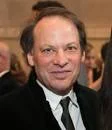A Declaration for Action
By Wade Lee Hudson
Introduction
Countless individuals and organizations relieve suffering and promote justice. Unfortunately, this compassionate humanity community is fragmented and afflicted with selfish and competitive hyper-individualism. Members don’t support each other to undo or control divisive social conditioning, even though this mutual aid could increase their effectiveness, help them unite based on shared principles, adopt new ways of working together, cultivate caring cooperation throughout society, and grow a compassionate humanity movement to change the System.
Currently, gaining wealth, power, and status is primary. Money is a way to keep score. Political ambition is an addiction. Social recognition is an obsession. But these patterns aren’t inevitable.
Businesses can serve the public interest as well as earn profits. Politicians can be community organizers who help build people power. Everyone can welcome praise, if it comes, as icing on the cake rather than seek it. We can make wealth, power, and status means to a higher end: serving humanity, the environment, and life itself, the invisible creative force that energizes and stabilizes the universe and enables living objects to reproduce.
Read More











